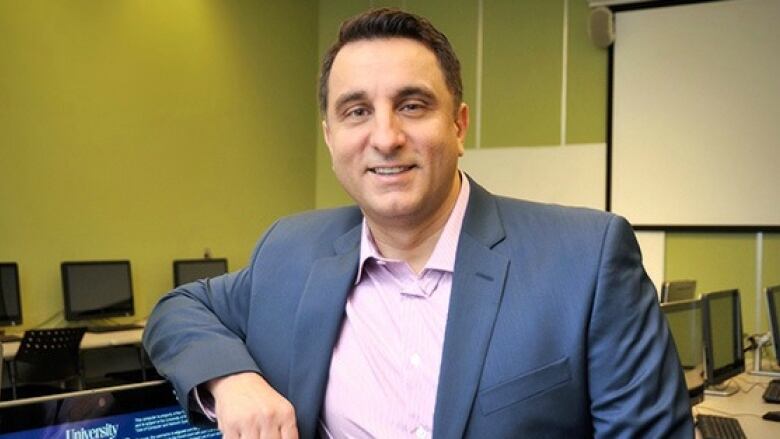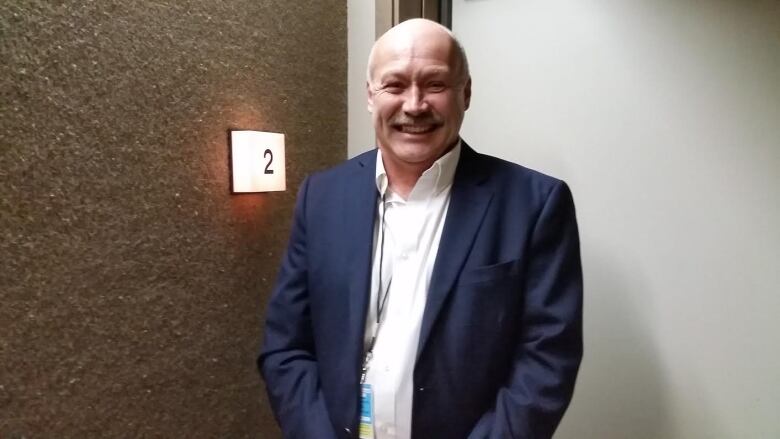Dr. Alec Couros discusses device ban in Regina school
Some schools ask students to bring their own devices while George Lee School in Regina has gone device-free

Recently, George Lee School released a letter written by principal ChristopherKeyesthanking "everyone for supporting [staff] in making George Lee a device-free school."

Dr. AlecCouros, a professor of educational technology and media at the University of Regina, joinedThe Morning Editionto discuss the broader uses of devices in the classroom, as well as their pros and cons.
Couroshas worked with hundreds of school divisions over the last few years and has noticed schools moving to a "bring-your-own-device" policy to fill in gaps and encourage more responsibility. He stresses that doesn't mean devices can't be problematic. Online bullying and being adistraction are some of the big issues, he said.
SheilaColes: The suspicion is that something like bullying might be going on. Are there other things you can empathize with a school administration when it comes to using electronic devices?
AlecCouros: The big ones are certainly bullying,sextingis certainly becoming an issue sending of explicit images or texts that's certainly a big one. Probably the next biggest one is just the attention that is taken away by students who are checking theirFacebook, orInstagram, or sending messages across to their friends or to unknown audiences. What was interesting on one of the statements from the school was, and to paraphrase, something like "technology is the biggest problem encountered in the school system." I think that's interesting because it's not really technology that's the problem. Technology is perhaps amediator for these problems but things like poverty, the lack of attention, lack of engagement in some cases, these are sort of the underlying pieces that are at play versus the technology. For the most part, technology can be used for good or for bad. Technology as being the problem itself, I don't think that's quite the right way of putting it.
SC: What are some examples, based on your experience with other school districts, of these problems being managed successfully?
AC: Many classrooms are using a stoplight system. For instance, a teacher will signal at the board or in front of the classroom. A red light would mean put your devices away; this is the time you need to be attentive to the teacher and this is not the time for technology. A yellow light might mean you can use it for personal and professional stuff. Green means that you have to be very attentive to your device and need to be using it specifically for the work in front of you. What this does is it starts to teach students the importance of seeing technology in different ways, that it's not necessarily something you can't use in your personal life but it allows students to see that moderation is important at certain times. [...] We have to remember that at this point, the average that a child gets an adult social networking account is about the age of nine or 10. So, we need to be talking about these things with their devices in school.
SC: Are there streams of teaching you see where devices have a place but other streams of teaching where they should be red-lighted?
AC: The area formative assessmentsthe idea that you assess students' knowledge at any particular time. There are a number of tools likeSocrative,Mentometer,Kahootfor instance that can be used to engage students and have them answer questions. With any device, whether it's aniPad, Android phone,iPhone, they can use this to basically submit information to the teacher where it can be assessed right in front of their eyes. [...] At times we need to put away our phones to think critically, to think deeply, to already tie in to the existing knowledge we already have rather than to give up our own cognitive means over to Google to let them do it for us.
SC: How much of a concern is screen time?
AC: The current narrative is that screen time is not necessarily a bad thing, it's what you're doing on that screen. So, if you are sitting passively watching television and you're not interacting and your brain is not in a mode where it can actually move, create, think, react and ask questions then that's poor screen time. If you're using screen time in the sense that you can actually do things, that the screen asks things of you, that you are able to interact with knowledge, [...] there are a number of appsthat are very personalized that allow students to react and learn and these apps in turn find out where you're at. [...] So, not all screen time is the same as others.
With files from The Morning Edition












_(720p).jpg)


 OFFICIAL HD MUSIC VIDEO.jpg)
.jpg)



























































































